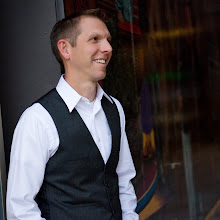
From Tim Keller's
Prodigal God, a thorough treatment of Luke 15:11-32:
"This elder brother cannot pardon his younger brother for the way he has weakened the family's place in society, disgraced their name, and diminished their wealth. He highlights the fact that the younger brother has been with "prostitutes," while he has been living a chaste life at home. "I would never do anything as bad as that!" he is saying in his heart. Because he does not see himself as being a part of a common community of sinners, he is trapped by his own bitterness. It is impossible to forgive someone if you feel superior to him or her.
If you can't control your temper, and you see someone else losing theirs is exactly the same way that you do, you tend to forgive them, because you know you are no better person than they. How can I hold this against them when I am just as bad? you think. However, because elder brothers' sin and antipathy to God is hidden deep beneath layers of self-control and moral behavior, they have no trouble feeling superior to just about anyone. If they see people who lie, or cheat on their wives, or don't pray to God - they look down on them. If such people wrong them, elder brothers feel their spotless record gives them the right to be highly offended and to perpetually remind the wrongdoer of his or her failure.

A classic example of this is the marriage of an alcoholic. The alcoholic repeatedly lets down his family in dramatic ways. As a result of her suffering, the addict's wife often
develops an enormous amount of self-pity and self-righteousness. The spouse bails him out and yet holds the record of his sins constantly over his head. This leads to more self-loathing on the part of the alcoholic, which is part of why he drinks. It is a seductive, destructive cycle. It may be that the elder brother, to bolster his own image of himself, needed a chronically wayward sibling to criticize, and the smug older brother only made it harder for the younger to admit his problems and change his life. When the younger son comes out of his denial, and the father welcomes him, the elder brother realizes that the pattern is being broken, and his fury is white-hot.
If the elder brother had known his own heart, he would have said, "I am just as self-centered and a grief to my father in my own way as my brother is in his. I have no right to feel superior." Then he would have had the freedom to give his brother the same forgiveness that his father did. But elder brothers do not see themselves this way. Their anger is a prison of their own making."
 From Tim Keller's Prodigal God, a thorough treatment of Luke 15:11-32:
From Tim Keller's Prodigal God, a thorough treatment of Luke 15:11-32:









0 comments:
Post a Comment